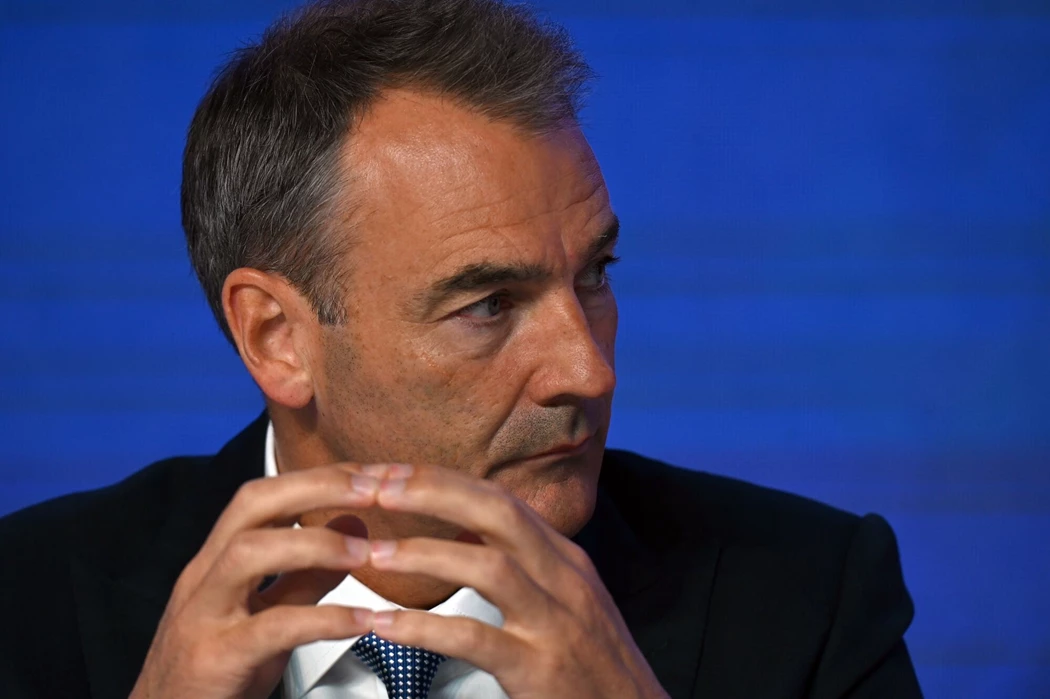BP Ends Its Week of CEO Chaos With Many Unanswered Questions
(Bloomberg) -- After several days of chaos, BP Plc is ending the week without a permanent leader and with significant doubts over its strategy.
The shock resignation of Chief Executive Officer Bernard Looney has thrust the energy giant’s board into the middle of a hurried recruitment process, a sensitive investigation into employees’ personal relationships, and a campaign to convince investors and staff that they have control of the crisis.
There’s little indication that any of these things are close to resolution.
“It’s been mismanaged,” said William Granger, a partner at law firm Wedlake Bell who specializes corporate governance, reputation and boardroom issues. “Of all the ones we’ve seen over the years, this was unusually fast.”
Shock Resignation
On Tuesday, 53 year-old Looney told BP he was resigning as CEO with immediate effect, having earlier in the day informed the board he had not been fully transparent in his disclosures over past relationships with colleagues. Chief Financial Officer Murray Auchincloss took on the additional role of interim CEO.
The announcement was sudden, shocking and disorganized. BP shareholders and employees first heard news of Looney’s departure from the Financial Times, waiting more than an hour for public confirmation from the company. Shares rose, then fell, then rose again as markets digested the implications.
Within 24 hours, BP Chairman Helge Lund and his investor relations team were calling top shareholders, which include the likes of BlackRock Inc, Vanguard Group Inc and Norges Bank, to explain what was going on.
Lund told investors that the company was sticking to its strategy, would search for a new CEO among both internal and external candidates, and ruled himself out of the running for the top job. That left a lot of unanswered questions about the company’s trajectory.
“The communications from the board were not clear on a path forward in terms of timing, replacement, search pool, strategy — all important questions,” said Bret Bero, assistant professor of practice in management at Babson College in Boston.
BP’s share price did eventually stabilize and ended the week little changed from Tuesday.
Questions Unanswered
In a webcast with employees on the same day, Auchincloss reiterated the message of continuity. “Today, just like every day in BP, we go to work in the field, in our refineries, in offices, at sea, at our retail sites,” he said.
He was joined by Lund and the Executive Vice President of People and Culture Kerry Dryburgh. Yet the call was short and it didn’t give staff the opportunity to ask questions, leaving many of them wondering what the company’s future looks like, particularly in the clean energy business, according to people who listened into the call.
Employees in BP’s low-carbon and sustainability divisions need only look to rival Shell Plc to see what difference a new CEO can make. It followed a similar trajectory to its London-based peer, announcing ambitious “net zero” plans under now-retired boss Ben van Beurden. Wael Sawan, who took Shell’s top job on the first day of this year, has already begun selling off some businesses associated with that policy.
Relative Strength
BP is no stranger to dramatic exits.
Three out of the last four CEOs resigned under pressure. John Browne in 2007 after lying in court in an effort to prevent a newspaper from publishing details of his personal life. His successor Tony Hayward was forced out in 2010 after mishandling the response to the Deepwater Horizon disaster.
For all the shock caused by the latest CEO exit, the business itself is healthy.
“Looney’s successor will, to some degree, inherit a position of relative strength,” said Russ Mould, Investment Director at AJ Bell. “BP is profitable, generating cash and debt is a lot lower than just a few years before and oil prices are rising. The situation looked a lot, lot blacker in 2010 after the Gulf of Mexico spill.”
But whoever becomes BP’s new CEO won’t only have to deal with operational matters. The ongoing inquiry into the reasons for Looney’s departure could be lengthy, potentially raising questions about whether the company conducted proper due diligence, Bero said.
If that is the case, BP’s terrible week might only be the beginning.
“The board has to continue investigating because the stock market is entitled to know what happened here,” said Granger. “It takes months and sometimes years for these things.”
©2023 Bloomberg L.P.





